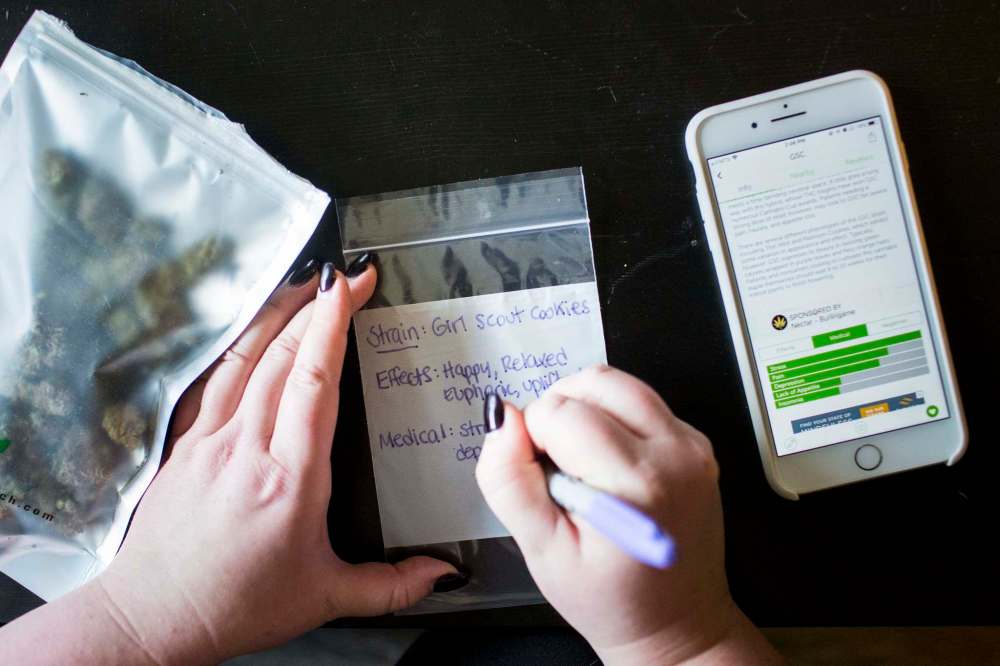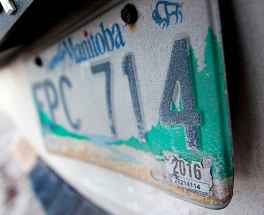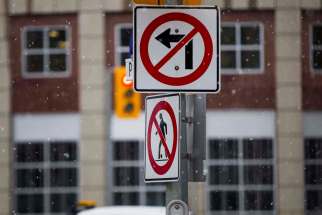Business as usual Legalization of little concern to local black-market weed dealers
Read this article for free:
or
Already have an account? Log in here »
To continue reading, please subscribe:
Monthly Digital Subscription
$0 for the first 4 weeks*
- Enjoy unlimited reading on winnipegfreepress.com
- Read the E-Edition, our digital replica newspaper
- Access News Break, our award-winning app
- Play interactive puzzles
*No charge for 4 weeks then price increases to the regular rate of $19.00 plus GST every four weeks. Offer available to new and qualified returning subscribers only. Cancel any time.
Monthly Digital Subscription
$4.75/week*
- Enjoy unlimited reading on winnipegfreepress.com
- Read the E-Edition, our digital replica newspaper
- Access News Break, our award-winning app
- Play interactive puzzles
*Billed as $19 plus GST every four weeks. Cancel any time.
To continue reading, please subscribe:
Add Free Press access to your Brandon Sun subscription for only an additional
$1 for the first 4 weeks*
*Your next subscription payment will increase by $1.00 and you will be charged $16.99 plus GST for four weeks. After four weeks, your payment will increase to $23.99 plus GST every four weeks.
Read unlimited articles for free today:
or
Already have an account? Log in here »
Hey there, time traveller!
This article was published 15/10/2018 (2615 days ago), so information in it may no longer be current.
As cannabis legalization looms, players in the local black market say they don’t intend to be put out of business.
The Free Press interviewed three Winnipeg-based marijuana dealers about whether they plan to keep selling after legalization Wednesday, and why.
All three dealers — the Free Press is not using their real names — reported they would keep distributing, so long as there is demand from their customers.

If early estimates are accurate, legal cannabis will be in short supply as retailers across the country deal with a lack of inventory.
Mark (not his real name), a 46-year-old Manitoba government employee, has been growing marijuana since the 1990s and selling to his friends and co-workers since the early 2000s.
He grows 25 plants at home and makes between $10,000 and $12,000 from every harvest.
Because his overhead costs are so low, Mark believes he can undercut retailers’ pricing.
“Why would somebody go to buy $70, $80 and $90 quarter (ounce) bags from the government when they can get it from me for 40 bucks? I’ll go as low as $30 a quarter to still say ‘f–k you, government, I can produce it.’ It’s still worth my while,” he said.
Mark believes his crop’s quality will exceed the government-supplied products’ as well.
”I’ll take the Pepsi Challenge any day against any grower out there,” he said, adding the novelty of buying marijuana from a government-approved retailer will wear off “really fast.”‘I’m just like a weed fairy, I’m the helper… I just sprinkle it everywhere’ – Whitney, not her real name, who plans to continue selling cannabis illegally post-legalization
The two other dealers the Free Press spoke to import their marijuana from growers in British Columbia.
Whitney, 25, said quality and price are the most important factors for cannabis enthusiasts. She may change her supplier after legalization, if she can find a more cost-effective and quality-conscious grower closer to home.
Whitney buys her products online, ships them to her home and distributes to about 10 clients, making about $200 per month — which pays for her gym membership — and covering the cost of her own cannabis.

“It was basically a savvy way for me to smoke for free and to make a little bit of money on the side,” she explained. “A lot of people are nervous to buy it themselves and have it shipped to their house and they think they’re going to get arrested, which is possible, right? It is illegal. But I’m willing to take that risk and then they can buy from me with no paper trail, and they don’t have to be worried anymore.”
“I’m just like a weed fairy, I’m the helper… I just sprinkle it everywhere,” she added with a laugh.
Whitney also labels all the bags of marijuana she gives customers with information about ingredients and side-effects. She usually includes a gift with purchase as well, like a small chocolate bar.
Travis, 28, delivers cannabis to his customers’ doorsteps seven days a week. He has 300 active clients and a long menu of items for sale, which buyers can browse through his automated text-messaging service.
He sells various cannabis strains, edibles (candy, pills, drops) and topicals (creams, bath bombs), among other items, and has a loyalty-points program offering discounts.
“I think I have a lot of loyal customers that are willing to go to me no matter what — unless the (retailers’) prices drop more than mine,” Travis said. “I’m going to find it really surprising if they can actually drop the prices lower than what I have.”
His prices range from $45-$60 per quarter ounce of marijuana, depending on the strain. He makes around $40,000-$50,000 per year in sales.
Travis said he was charged by police with trafficking once before when he previously sold cocaine and ecstasy. So now he’s hyper-cautious of not getting caught a second time.
He uses scent-proof bags, doesn’t drive a flashy car, drives the speed limit and never texts behind the wheel — hence the automated messaging service.

“(Getting caught) is on my mind every single day. There’s nothing much I can do about it,” Travis said. “I just have to be prepared and accept the consequences when it actually comes to me.”
The province isn’t expecting to see the cannabis black market go dark anytime soon either, Growth, Enterprise and Trade Minister Blaine Pedersen acknowledged at a news conference last week.
“First of all, we don’t have any illusions that (legalization) is going to stop the black market. What we’re offering is… a safe alternative for those who wish to consume,” Pedersen said last Wednesday.
“Our goal is to eventually eliminate the black market, but we have no illusions about Oct. 18, (that) there will be no black market — that’s just not reasonable to even think that.”
jessica.botelho@freepress.mb.ca
Twitter: @_jessbu










